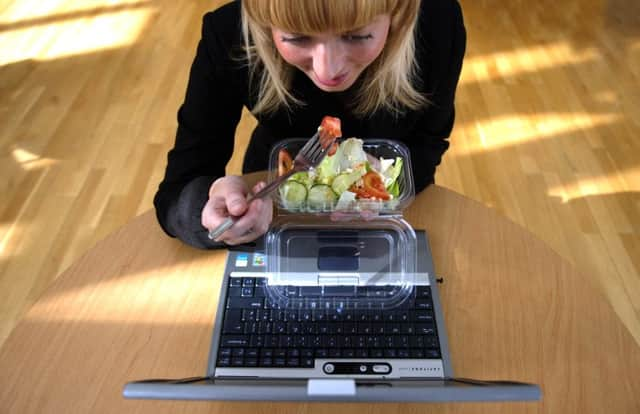Working late and dining al-desko pose health risk


A survey for the Chartered Society of Physiotherapy (CSP) found that 17 per cent of people in Scotland said they worked through their lunch every day.
And of those who did manage to take a break, 42 per cent said they ate at their desk.
Advertisement
Hide AdAdvertisement
Hide AdThe research found that only 17 per cent left their workplace to go outside for a break, and only 2 per cent went to the gym.
The poll found that 41 per cent of people said they often had to cancel exercise plans because of work, while just over a third said they started earlier or finished later than their contracted hours every day.
The findings were released as part of “Workout at Work Day” today with people being encouraged to find ways of building activity into their daily routine.
Kenryck Lloyd-Jones of the CSP in Scotland said: “Full-time workers spend a significant part of their week at work, or travelling to and from it.
“Finding ways to build in time to do at least 30 minutes of moderate intensity physical activity, five times a week, can be a challenge.
“Free facilities like outdoor gyms, parks or simply going for a brisk walk at lunchtime, can help people to be more active during the day. You could also consider getting off the bus a stop early or parking further away from work.
“The consequences of not doing so can be devastating, with many people suffering ill health and prolonged spells off work due to less active lifestyles.”
Mr Lloyd-Jones said inactivity also had a cost for businesses, with high sickness absence and lower productivity.
“It is in everybody’s interests to find ways to tackle the enormous problem of inactivity in the UK and we would encourage people to take responsibility for their own health,” Mr Lloyd-Jones added.